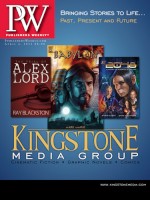People can travel through time in Félix J. Palma's The Map of Time, the first in a trilogy inspired by H.G. Wells's The Time Machine.
How does this book differ from your earlier ones?
In all of my fiction I always include an element of fantasy, in at least a very minor way, which I use to shatter a character's routine. Sometimes it shows up as a subtle metaphor or, as is the case with The Map of Time, in a much more visible way. What separates this from my other fiction is that the setting is in the past, something I hadn't attempted before out of fear of failure. This story could only work if it were set in the Victorian era, so I took that as a challenge.
Are there themes that connect your fiction?
There are some themes I just love to write about, and I'm powerless to resist them. In this book, you can see my penchant for fantasy, which is obvious, but you can also see my interest in the absurd, in the element of chance, in pusillanimous characters whose lives are shades of gray. It's more than just escapism from reality; it's a sublimation of reality through a fantastical vision of existence.
How do you go about plotting a book as intricate as this one?
Before I begin to write, I've detailed the novel's plot, and I rarely let it take an unexpected detour. When that does come about, it tends to happen somewhere in the middle of the novel, since I already have a clear idea of the beginning and the end before I start writing. Given the number of twists and turns in The Map of Time, it would have been impossible to write it without a clear roadmap, at least for me.
Having an omniscient narrator is essential to the book's success. Did you decide on this point-of-view from the outset?
When I sketched out the novel, I understood that it could neither be told in the first person by a single character, nor by a narrator who followed only one of the characters. I needed a narrator who could see all the stories at once and could jump from one to the other as needed. Once I realized that, I almost immediately decided I could do it theatrically, that is, addressing the reader directly and even offering opinions, the way certain 19th-century narrators did. I think the spirit of the novel can be summed up in a single phrase: for something to become real, it only needs to be narrated.



 Volume 258
Issue 14
04/04/2011
Volume 258
Issue 14
04/04/2011





